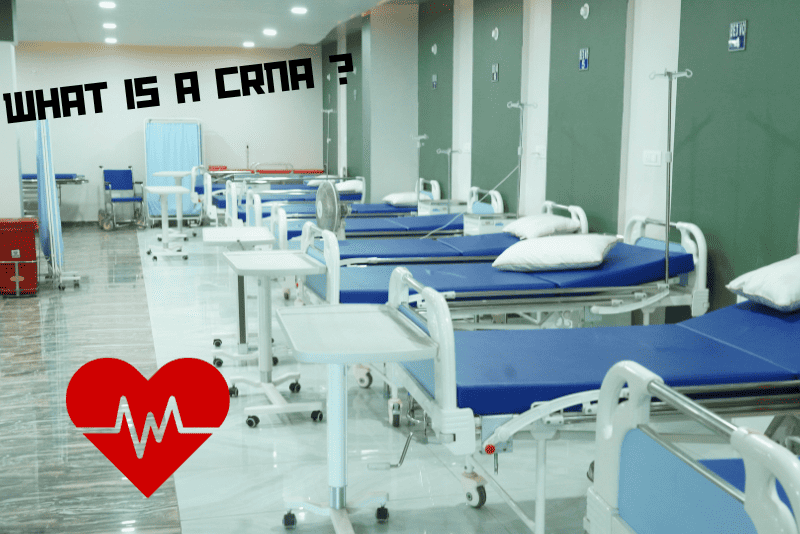Are you passionate about healthcare or are you dreaming of a career that allows you to make great money, you can work almost anywhere and you can make a difference in people’s lives?
In this post you are going to learn many of the similarities and the differences in CRNA & Medical School that that it can help you make a better choice on the route you want to go for a career.
There are many high school students , college students , nursing students and even current nurses that find themselves torn between two different career paths. Should they become a Certified Registered Nurse Anesthetist (CRNA) or Should they choose to go to Medical school.
Both choices offer unique great opportunities , but vary in different aspects of schooling and patient care.
Let’s dive into the key differences between CRNA School or Medical school. Hopefully this will help you gain clarity on which path may be best suited for your ambitions and goals.
So buckle up – we’re about to embark on a journey towards understanding these to educationl tracks and professional fields!
CRNA School and Medical School: An Introduction
Choosing a career in healthcare offers such a wide range of career choices that there is something for almost everyone . Two of the popular choices are going to CRNA school to become a Certified Registered Nurse Anesthetist (CRNA) or attending Medical School to become a Physcian.
Both career paths involve working closely with patients and providing medical care but there are some differences in the training and experience required. Lets dive into the roles and responsibilities of CRNAs and doctors, as well as explore the educational paths that lead to each profession.
What is a CRNA?

A Certified Registered Nurse Anesthetist (CRNA) is an advanced practice nurse who specializes in administering anesthesia during surgical procedures, placing labor epidurals, providing chronic pain relief and works in a lot of different enviroments all over the country. CRNA’s are highly skilled professionals who work with surgeons to provide optimal operating conditions and other healthcare providers to ensure safe administration of anesthesia to patients.
To become a CRNA you must meet some requiurments first. You must have a background in nursing before entering a specialized CRNA training school. Some of the requirments to get into CRNA School include:
- Bachelor’s degree in Nursing (BSN)
- Passing the National Council Licensure Examination for Registered Nurses (NCLEX-RN)
- Working 1-3 years as a registered nurse in the ICU
- Have a competitive GPA
- Take the GRE
After fulfilling these requirements, aspiring CRNAs then go through rigorous graduate-level education in an accredited Nurse Anesthesia Program. Anesthesia School can take anywhere from 24-36 months to complete. Some of the didatic work includes advanced pharmacology, anatomy, physiology, pathophysiology, patient assessment techniques, airway management skills, pain management techniques and this also includes clinical work of going to the hospital each day to the Operating Rooms.
The curriculum for CRNA programs is specifically designed to prepare students for the advanced practice of anesthesia. It covers topics such as pharmacology, pathophysiology, anatomy, physiology, patient assessment, airway management, and anesthesia techniques for all ages and surgical specialties.
Whats the Differences in Training and Education

When considering a career as a CRNA or pursuing Med School, it is important to understand there are differences and similarities. Both are highly respected professions within the healthcare field, but there variations in their training and educational requirements.
1. Educational Background + Experience
Med school requires a bachelor’s degree followed by four years of medical school, while becoming a CRNA also involves a completing a Nursing Program and reciving a Bachelors degree in Nursing. To gain enteance into CRNA School one mush have passed the NCLEX and be a RN currently working in a high acuity ICU for 1-3 years .
2. Time Frame:
The time frame for completing the necessary education and training also differs between these two careers. It takes approximately eight years to become a physician- four years for undergraduate studies followed by four years of Med school.
To become a CRNA can it takes 4 years for nursing school plus at least one year of work experience as an RN In the ICU before starting in a CRNA Program that ranges from 24-36 months.
3 . Focus on Nursing vs Focus on Medicine:
Another crucial difference between becoming a CRNA versus attending Med school is how one is trained. While both professions’ ultimate goal is patient care, each approaches it differently based on their core philosophies and principles.For example Nurses have a holistic approach to patient care, emphasizing overall well-being and taking in the cruical hours spent at the beside while working in a ICU.
Entry and Eduction Requirements for Med School

Most Medical Schools in in the United States require applicants to have completed a bachelor’s degree, which includes specific pre-medical coursework such as biology, chemistry, physics, and math. Each school my have a few different prerequisites so knowing what each school specialty requires is important to be familar with.
A great resource to search different Medical schools is the American Association of Medical Colleges. They have a lot of resources to help you research different programs
The Medical College Admission Test (MCAT) is a test you have heard of if wanting to become a physcian. In the United States it is required for almost all medical schools. The MCAT will help access your knowledge of natural ,social sciences concepts , critical thinking and problem solving.
The MCAT may be one of the biggest sources of anxiety for induviduals looking to become a physcian and get into Med School. If you want to see what some of the test looks like or to practice your problem solving skills try a MCAT Study guide.
Clinical Experience for applying for Med School is helpful for getting into school. One great way for an applicant to show their strong desire to work in medicne is to show that they have worked or voluntereed in a healthcare setting.
Some examples of experience one could show on an application could include shadowing physicians or other healthcare professionals, volunteering at hospitals or clinics, or working as an emergency medical technician (EMT) or certified nurse assistant (CNA).
Anytime you can show that you have already taken the steps of working in some area of healthcare it really helps Med School admission committees see your strong desire and commitment to becoming a Physcian
Understanding the Differences in Curriculum & Courses
Curriculum and Courses play a crucial role in understanding the key differences between CRNA (Certified Registered Nurse Anesthetist) and medical school. Both professions require extensive training, but their approach to education differs significantly.
You have learned in the above pargraphs what some of the admission requirements are for CRNA school and Med School. Here in this section we will breakdown the curriculums of each and give you a better broad idea of what to expect.
Nurse Anesthesia School Curriculum Basics:
- Nursing Foundation: CRNA programs require candidates to have a nursing background and obtaining a BSN after going to Nursing School. Much of the Focus in Anesthesia School comes from the ICU trained nurses relying on their background of working in Intensive Care and relating the complexty of that bedside knowledge to the field of Anesthesia.
- Anesthesia and Pharmacology: The majority of CRNA school curriculum revolves around anesthesia and pharmacology. Students delve into the science of anesthetics, learning how to administer them safely and effectively. Understanding pharmacology is vital to CRNAs, as they manage patients’ pain and monitor their responses to anesthesia. Anestheisa providers have to be well trained in the complexity of many health problems and how to safely provide Anesthesia for everyone in the most critical of times.
- Clinical Rotations: Nurse Anesthesia students spend a significant portion of their program in clinical rotations. These rotations expose them to various surgical procedures, anesthesia techniques, and clinical settings. Hands-on experience is invaluable for building competence.
- Physiology and Pathophysiology: CRNAs need a deep understanding of human physiology and pathophysiology to assess patients accurately, administer anesthesia, and manage complications effectively. Therefore, courses in these subjects are typically included in the curriculum.
- Ethics and Professionalism: Like medical students, CRNA students are educated in ethics and professionalism. They must adhere to high standards of patient care and ethical conduct throughout their careers.
Medical School Curriculum Basics:

- Pre-Clinical and Clinical Phases: Medical school curriculum is divided into pre-clinical and clinical phases. The pre-clinical phase covers subjects like anatomy, physiology, biochemistry, and pharmacology. It provides the foundational knowledge required for clinical practice.
- Specializations and Electives: In the later years of medical school, students can choose their medical specialties and take electives in areas of interest. This allows them to tailor their education to their career goals, whether it’s surgery, pediatrics, internal medicine, or another field.
- Clinical Rotations: Medical students undertake clinical rotations during their third and fourth years, where they gain hands-on experience in different medical specialties. These rotations help them decide on their preferred specialization and refine their clinical skills.
- Board Exams: To become licensed physicians, medical school graduates must pass a series of board exams, such as the USMLE (United States Medical Licensing Examination). These exams assess their knowledge and clinical competence.
- Residency Training: After medical school, graduates enter residency programs that last several years, depending on their chosen specialty. During this time, they receive advanced training in their field.
Curriculum of CRNA school focuses on anesthesia , pharmacology, physics, pathophysiology, and all that surrounds providing excellent anesthesia care along with a strong emphasis on clinical experience. Medical school provides a broader education in various medical specialties, followed by residency training.
Ultimately, the choice between CRNA school and medical school should align with your career goals and interests. Both paths offer fulfilling careers in healthcare, each with its unique educational journey.
Many Things to Consider
When you are considering a career healthcare you can face many crucial decisions as to which path may be best for you.
When you have the option between two different pathways, CRNA School or Medical School knowing as much about each possible career is super vital in making this life long career choice. Do not let any one tell you that either path choice is easy, becuse both paths require dedication and determination. Also, each path offers unique rewards.
Before we conclued this post here is a a summary of some of the major things to think about before you decide on what education path you take for your career.
Summary of Considerations : Medical School Vs CRNA School
There are lots of things to consider for both pathways of education. Here is a quick rundown of thngs to consider when you are considering which pathway to choose.
Understanding Nurse Anesthesia School:
- CRNAs are trained to focus on Anesthesia.
- Their primary role is to administer anesthesia, ensuring patient comfort and safety during surgical and medical procedures.
- CRNAs work in collaboration with surgeons,and other healthcare professionals
How CRNA’s are Educated and Trained:
- CRNA programs train from a Nursing perspective
- CRNA Schools are heavily emphasized anesthesia, pharmacology, and pain management education.
- Clinical rotations in the hospital setting provide hands-on experience in anesthesia care.
- Graduates earn a Master’s or Doctorate in Nurse Anesthesia.
School length and Cost
- CRNA programs typically take 2-3 years to complete. Don’t forget Nursing School plus working in the ICU
- Tuition costs range from FREE ( Military)-$180,000+
Entry Requirements:
- Candidates need a nursing background with a Bachelor of Science in Nursing (BSN).
- Experience as a Registered Nurse (RN) is required in a high acquity ICU.
- Admission can be competitive, with a focus on academic achievement, work experience, and interviews.
Career Prospects:
- CRNAs are highly specialized and in-demand professionals.
- They practice in various clinical settings, including hospitals, surgery centers, and pain clinics.
- CRNAs have a high level of autonomy in anesthesia care.
- A CRNA average Salary is $198,000
Understanding Medical School:
Role and Responsibilities:
- Medical doctors (MDs) are physicians are educated and trained in a wide variety of topics.
- Once Med School is complete they can specialize in a wide range of medical fields, such as surgery, internal medicine, pediatrics, and more.
Education and Curriculum:
- Medical school provides a comprehensive medical education, covering subjects like anatomy, physiology, pharmacology, and clinical skills.
- Students have the flexibility to choose specialties during their later years.
- Residency programs which is after medical school to provide advanced training in chosen specialties.
Duration and Cost:
- Medical school requires four years of study.
- Residency programs add several more years of training depending on the speciality.
- Medical education can be costly, with tuition fees and potential student debt.
- The Average debt in 2021 for graduates was $200,000
Entry Requirements:
- Pre-medical education is essential, usually a Bachelor’s degree with specific pre-requisite courses.
- The Medical College Admission Test (MCAT) is required for admission.
- Acceptance to medical school is highly competitive.
5. Career Prospects:
- MDs have a broader scope of practice than CRNA’s. Many opportunities to specialize in various medical fields other than Anesthesia.
- Physcians work in hospitals, clinics, private practices, and research institutions.
- MDs may have a higher earning potential compared to CRNAs depending upon the specialty.
Other Factors in Chosing MD vs CRNA School
This may sound kind of late in this artice to say at this point , but one of the biggest factors in deciding on what type of school you want to attend is to know what your end outcome or career you want to be.
If you want to be involved in Orthopedics then don’t go to CRNA school unless you just want to work in an orthopods room and do Anesthesia for their patients.
Being a CRNA is a fantastic career, but you do not have the flexibility to go into any field you want like someone who went to Medical School.
Another consideration you may wnt to take into mind is the cost of school . Not only consider the cost of just the school but also take into mind where the schools are located. Will you have to move, what is the housing cost, is their out of state tuition. Going to a school that is closer to home has many advntages such as support from family physically, emotionally and financially.
What type of lifestyle to you want to have?

Both CRNA’s and MD’s have varying lifestyles. Depending on the setting and speciality you have as where as where you work will depend greatly on your lifestyle.
For example , you may decide to work out in a rural are where you are tho only provider and are always on call but have a great above average salary . Or you may decide to work in a surgery center or clininc where you don’t work any holidayrs or weekends and are off work each day at 3.
This is just two examples and there are so many varieations inbetween, but you may want to consider how you would like to live your life before it gets all plnned out for you. You don’t have to decide now.
There are lifestyle jobs in either path that you choose to go.
Its up to You!

CRNA school and Medical school are two different pathways in healthcare. Both offer unique opportunities and challenges.
Your choice on deciding between them hinges on your career aspirations, educational background, financial considerations, and lifestyle preferences.
Both CRNAs and MDs play vital roles in patient care, ensuring the delivery of safe and effective medical services. Ultimately, the decision should align with one’s passion, goals, and vision for a rewarding career in healthcare.

